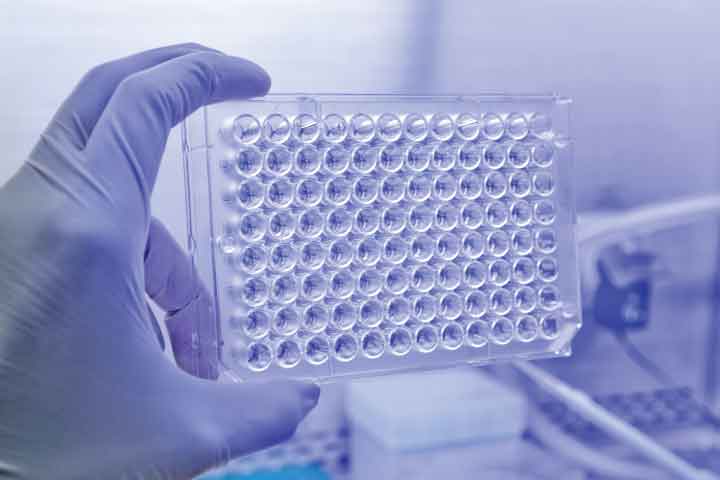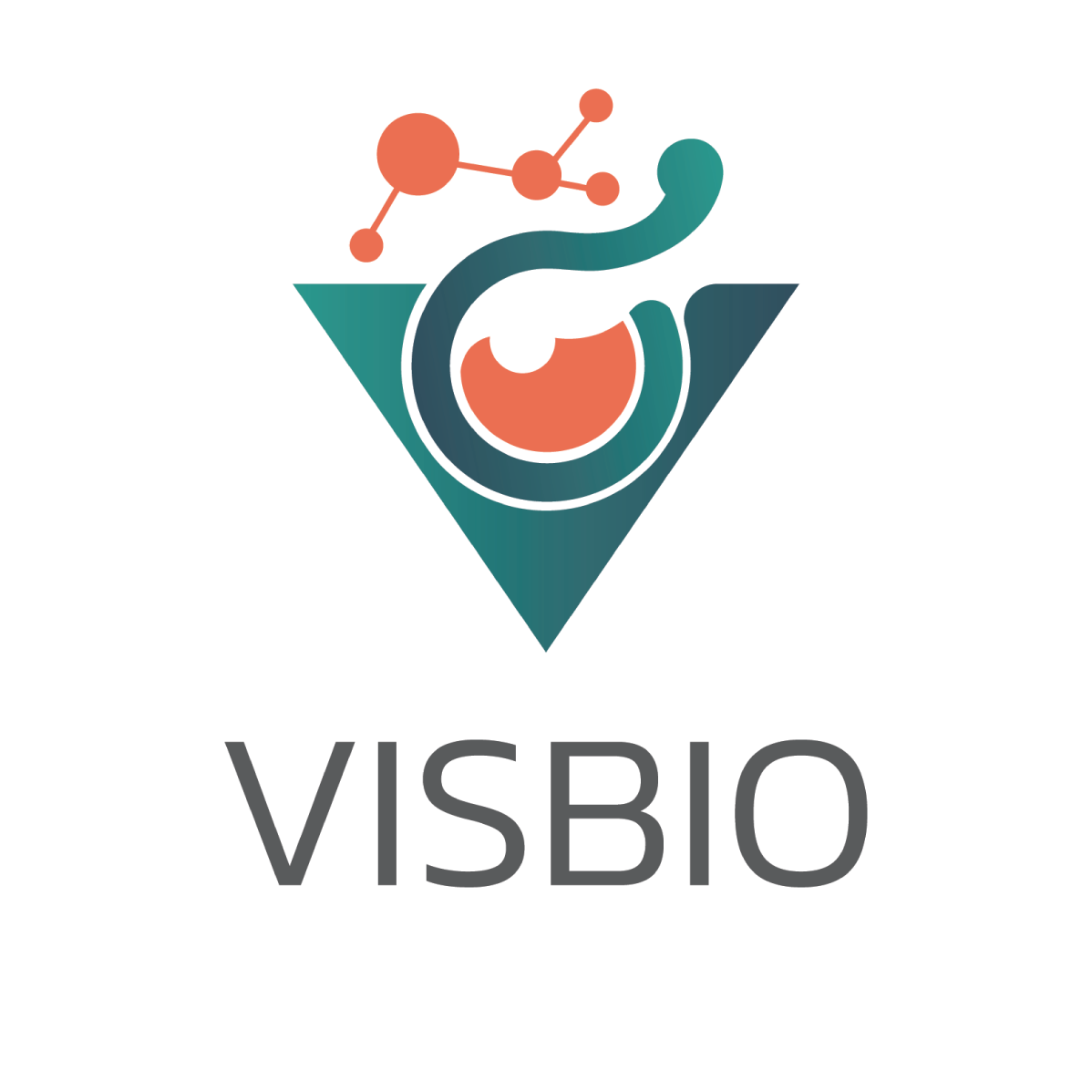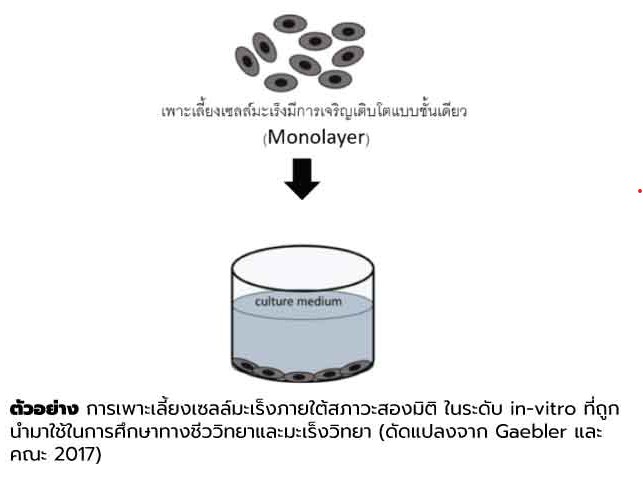
Service Information for Testing the Inhibitory Efficacy of Colorectal Cancer (Human Colorectal Carcinoma, HCT116)
VISBIO Co., Ltd offers an analysis service for testing the effectiveness of inhibiting large intestine cancer cells of the Human Colorectal Carcinoma (HCT-116) type at the cellular level in the laboratory. The testing is performed under two-dimensional cell culture conditions (2D Cell Culture) and is suitable for in-depth research aiming to develop herbal medicines capable of inhibiting cancer cells.
Colorectal cancer is a disease that is increasingly prevalent each year and is a leading cause of death among Thai people. It is a condition characterized by the malignant growth of tumors in the large intestine, with cells dividing uncontrollably. The cause of colorectal cancer may be related to a low-fiber diet leading to chronic constipation or exposure to toxins and substances that remain in the intestines for extended periods, potentially coming into contact with the intestinal walls. Risk factors include smoking and alcohol consumption.
Currently, there are ongoing developments of herbal products, herbal extracts, dietary supplements, or medications for maintaining and combating inflammation of the large intestine. These products are tested for their efficacy at the cellular level regarding their toxicity to cancer cells, inhibitory properties, or appropriate concentrations for inhibiting Human Colorectal Carcinoma (HCT-116) cells.
Introduction to Colorectal Cancer
Colorectal cancer, also known as colon cancer, is currently a prevalent disease that is increasing in frequency every year and is a leading cause of death among Thai people. According to data from the World Health Organization in the year 2018, colorectal cancer is one of the top five most commonly diagnosed cancers worldwide. As per the National Cancer Institute of Thailand in the year 2021, colorectal cancer ranks as the second most common cancer in Thai males and the third most common in Thai females. Generally, the population has about a 6% chance of developing colorectal cancer, and it is more commonly found in individuals over the age of 50.
Colorectal cancer is a condition characterized by the malignant growth of cells in the large intestine, where these cells divide uncontrollably, leading to the formation of tumors. This uncontrolled division can damage the surrounding tissues and organs and can spread to other organs through the bloodstream and lymphatic system, a process known as metastasis.
The causes of colorectal cancer may include a low-fiber diet leading to regular constipation or exposure to toxins and residues in the intestines, which can come into contact with the intestinal wall for an extended period. Additionally, individuals with a family history of colorectal cancer are at a higher risk of developing the disease.
Human colorectal carcinoma (HCT-116)

Human colorectal carcinoma (HCT-116) is a type of large intestine cancer cell derived from humans. It is one of the commonly used human colorectal cancer cell lines for studying the biology of colorectal cancer. Researchers study its response to external or internal agents in microplates (Well Plate) during 2D or 3D cell culture (Anti-cancer) in a nutrient medium.
The testing method for the Human colorectal carcinoma (HCT-116) cancer cells involves culturing the cancer cells (Cell Culture- Anti-cancer).
Currently, there is ongoing development of herbal products, herbal extract substances, dietary supplements, or medications used for maintaining or combating inflammation of the large intestine. These products can be tested at the cellular level to determine their cytotoxicity against cancer cells, inhibitory effects, or appropriate concentrations for inhibiting Human colorectal carcinoma (HCT-116) cancer cells.
The testing process involves taking cells or tissues directly from living organisms and culturing them in a controlled environment, allowing the cancer cells to grow and proliferate. The division or multiplication of cells is closely related to cancer cells grown in experimental animals or cancer cells found in patients’ bodies. Studying the cellular level is a preliminary test before conducting further analysis in animal experiments or clinical trials.
Testing the inhibitory efficacy against Human colorectal carcinoma (HCT-116) cells using the MTT assay.

The inhibitory efficacy against Human colorectal carcinoma (HCT-116) cells was tested in cell cultures or in microplates (Well Plate) using the Methyl tetrazolium 3-[4, 5-Dimethylthiazol-2-yl]-2, 5-diphenyltetrazolium bromide (MTT) assay. The MTT assay is a method used to test the inhibition of cancer cells in microplates based on the activity of the enzyme dehydrogenase in mitochondria. The yellow dye of MTT (3-[4, 5-Dimethylthiazol-2-yl]-2,5Diphenyltetrazolium Bromide) is converted into a purple formazan product.
Therefore, formazan is used to indicate cell viability, where dead cancer cells appear transparent without color, and viable cancer cells have purple formazan formed inside the cells. When dissolved in a solvent, such as DMSO, the purple-blue solution can be measured for absorbance using a spectrophotometer, which directly correlates to the quantity of viable cells. Subsequently, the percentage of cell survival for cancer cells can be calculated and compared to standard substances. The results can be reported as the percentage of cancer cell inhibition or the IC50 value, which represents the concentration of the inhibitory substance required to inhibit 50% of cancer cells.
Literature:
- บทความสุขภาพ มะเร็งลำไส้ใหญ่ รู้ทัน ป้องกันได้, โรงพยาบาลศิริราช ปิยะมหาราชการุณย์ https://www.siphhospital.com/th/news/article/share/932
- นุสรา ภาคย์วิศาล, การรักษาโรคมะเร็งลำไส้ใหญ่, โรงพยาบาลจุฬาลงกรณ์ สภากาชาดไทย
- แผนยุทธศาสตร์สถาบันมะเร็งแห่งชาติ, สถาบันมะเร็งแห่งชาติ กรมการแพทย์ กระทรวงสาธารณสุข, พ.ศ. 2562 – 2565
- คู่มือการพยาบาลผู้ป่วยมะเร็งลำไส้ใหญ่และทวารหนักที่ได้รับการรักษาโดยการผ่าตัด, งานการพยาบาลผู้ป่วยพิเศษ ฝ่ายการพยาบาล โรงพยาบาลศิริราช คณะแพทยศาสตร์ศิริราชพยาบาล มหาวิทยาลัยมหิดล, พ.ศ. 2557
- ทะเบียนมะเร็งระดับโรงพยาบาล, สถาบันมะเร็งแห่งชาติ กรมการแพทย์ กระทรวงสาธารณสุข, พ.ศ.2564
- https://www.cancerresearchuk.org/about-cancer/bowel-cancer/stages-types-and-grades/dukes-staging
- Gaebler M, Silvestri A, Haybaeck J, Reichardt P, Lowery CD, Stancato LF, et al. Three-dimensional patient-derived In vitro sarcoma models: promising tools for improving clinical tumor management. Front Oncol 2017; 7: 203.
- Rajput A, Dominguez San Martin I, Rose R, et al. Characterization of HCT116 human colon cancer cells in an orthotopic model. The Journal of Surgical Research. 2008 Jun;147(2):276-281. DOI:



